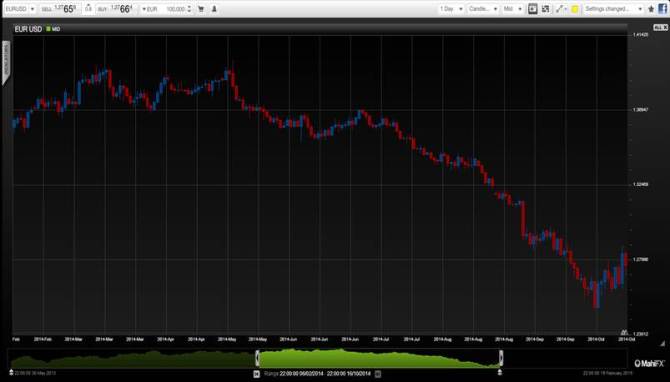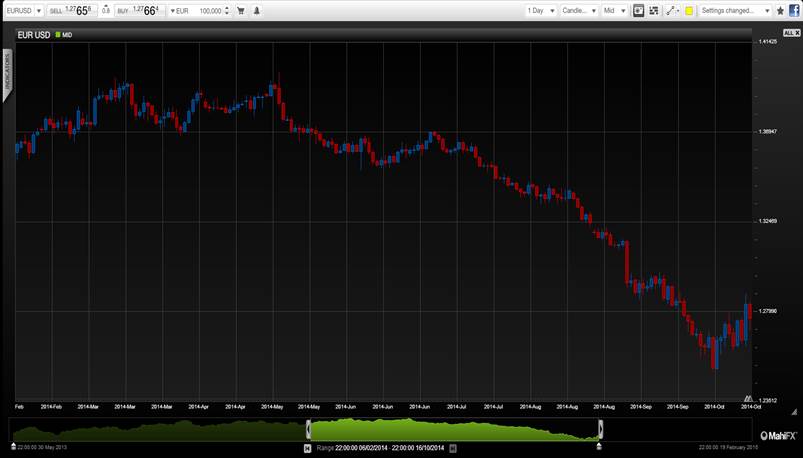Fear is back and generating volatility across the major markets, including forex, with participants dialling down expectations of rate rises in the US and UK and are growing increasingly concerned over the state of the global economy.
JPY has strengthened on cue, whilst USD has actually weakened, despite its safe haven status, and this has happened due to US interest rate expectations been shunted further into the future.
The sudden change in sentiment seems to have been triggered by poor economic data out of the Eurozone, Japan and China’s slowing economy. The end of the US Federal Reserve’s quantitative easing programme this month is yet another factor. However, newer trends include the Ebola outbreak and protests in Hong Kong.
By Justin Pugsley, Markets Analyst. MahiFX Follow @MahiFX on twitter
However, most of these factors are not particularly new, rather it’s the market’s assessment of them. Nonetheless, there are some reasons for optimism that the global economy isn’t sliding back into recession – despite a bigger than expected drop in US retail sales recently.
EUR/USD recovery looks temporary

Falling oil prices will provide economic stimulus
One of the more dramatic price falls is for oil, which is down by a quarter in just three months.
One of the reasons is weak oil demand. But supply might provide a bigger part of the explanation for lower prices. It appears Saudi Arabia might be starting a price war plus there’s the US shale oil / gas boom, which is displacing a lot of product on world markets.
For consuming countries a sustained fall in oil prices will have two key impacts. The first is actually very good news as it will be a form of economic stimulus, which will reach the real economy.
The second impact is more mixed – it will also be deflationary and that will be picked up by central banks determined to stimulate some mild inflation in their economies. It could see the Bank of Japan carry on longer with its QE programme and prompt the European Central Bank to be more aggressive.
So in a sense continued falls in oil prices could actually be a negative for the EUR and JPY once markets shift back into a ‘risk on’ mode.
For the US and UK it would suggest delays in interest rate rises. Nonetheless, the US and UK economies are currently in much better shape than the Eurozone’s or Japan’s, so in theory USD and GBP shouldn’t cede too much ground to EUR and JPY.
The big question is whether the current bout of nerves signals something much worse – such as a return to global recession. For the time being that seems unlikely. Indeed, the recent spate of poor data may turn out to be a blip in what is otherwise a fairly tepid global economic growth environment.
More: EUR/USD: Impact Of Lower Oil Prices – BNPP
